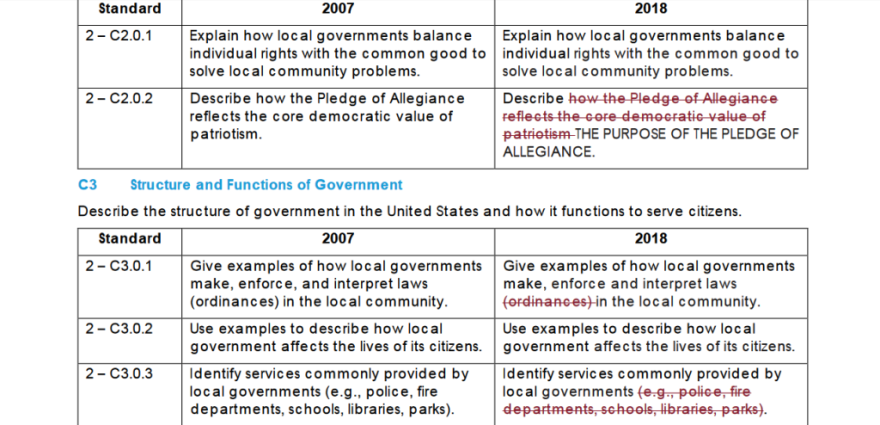Many people were outraged recently when the Texas Board of Education voted to remove figures such as Hillary Clinton and Helen Keller from its history books. Michigan may be on a similar course.
A workgroup met for more than a year to develop a set of proposed changes to Michigan’s social studies standards. Those changes include the removal of many historic references now taught in schools.
The proposal angers some who fear Michigan is taking a big step backward.
Alex Hosey knows the power of standing up by sitting down. Last year, the soft-spoken student-athlete at East Lansing High School wrote an essay explaining why he sits during the national anthem.
“I don’t like that many people just assume that blacks and people of color are inherently lazy, violent or rebellious,” reads an excerpt from his essay.
Alex called attention to East Lansing’s past history of “redlining,” the practice of barring African-Americans from owning a home in the city limits.
East Lansing abolished its policy in 1968. But no one ever apologized for the city’s institutional racism.
Then, along came Alex Hosey.
“Fifty years ago, there was maybe a handful of blacks my age that were actually able to live here,” he explains. “Now, I’m able to do that, and it just makes me happy.”
But Alex is not happy about some proposed social studies revisions that threaten to strip some key moments in civil rights history out of his textbook.
In a draft document released by the Michigan Department of Education last May, a number of concepts including the NAACP, the March on Washington and the Ku Klux Klan have been struck through.
Deleted. Redlined.

“I was shocked, and honestly, appalled,” says Alex Hosey’s father, Sam.
Even before they saw the proposal, Sam says he and Alex had asked East Lansing High School specifically to teach students about redlining.
“They were gracious enough to listen to what at that time a freshman had to say about history and some of the things that he would like to see included in the curriculum,” says Sam Hosey. “So, seeing that things are being taken out is totally, I think, wrong in terms of what we are looking for.”
The group tasked with drafting Michigan’s first social studies overhaul since 2007 was given this mantra: make the new standards “fewer, clearer and higher.”
Rebecca Bush is a social studies consultant for the Ottawa Area Intermediate School District. She’s on the writing and review committee. Bush says when you’re conveying controversial material...words matter.
“It’s extremely difficult,” says Bush. “You have to go through the process of, well, what could the implications be of using one phrase over another?”
This summer, the Michigan Department of Education solicited input at a series of 18 public hearings across the state.
At the final session held September 20 in Mt. Pleasant, two department officials listened to a litany of comments from a small but impassioned audience.

“We have changed ‘core democratic values’ to ‘core values,’” asserted Oakland University professor Anthony Francis. “Why don’t white, powerful men want the word ‘democracy’ in there? Because it threatens their power. We have removed the term ‘the common good.’ How dare we think that this is OK?”
Central Michigan University student Aja Philpot wanted to know why the writers chose to remove references to the Ku Klux Klan ... a historical reality she says is just as important as the Selma March and Martin Luther King Jr.
“I’m a third generation freed slave...that is not that far away,” says Philpot. “So, let’s not forget who we are just so we can change who we are.”
Committee member Rebecca Bush says much of what was cut in the proposed new standards was done so by mistake. She says there were a lot of drafts being passed back and forth during the process. Bush says many omissions were the result of a clerical error.
“It was not intentional on anyone’s part, but there were some phrases that were just simply not transferred from one document to another,” Bush insists.
Other deletions were a gesture towards clarity. The 2007 standards contained many parenthetical references. Rebecca Bush says teachers were confused about which ones were considered testable on the state’s M-STEP exam. She says the new proposal is designed to eliminate that confusion.

The Michigan Department of Education has received thousands of public comments on the proposed standards. Now, officials are screening volunteers for a task force that will sift through the feedback and make recommendations on the final standards.
The state hopes to have that task force in place for its first organizational meeting October 15 in Lansing.








